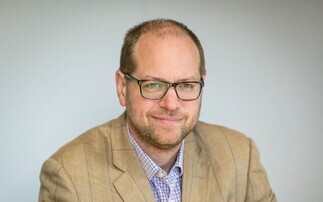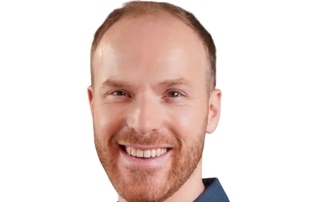Mike Scott explores how three leading firms from very different sectors are trying to deliver on the UN's goal of decent and sustainable work for all
In 2014, the Guardian newspaper published an expose of the seafood industry in Thailand, which reported that "large numbers of men [are] bought and sold like animals and held against their will on fishing boats off Thailand that are integral to the production of prawns sold in leading supermarkets around the world, including the top four global retailers: Walmart, Carrefour, Costco and Tesco".
It followed up a year later with another report that Rohingya refugees were being sold to Thai fishing vessels as slaves.
Although not named in either report, the spotlight on the fishing industry in its home country was a rude awakening for Thai Union, one of the biggest seafood producers in the world. "Even though only two per cent of our fish now comes from Thailand, if you are one of the largest seafood companies in the country, that's a material issue," says Dr Darian McBain, global director of corporate affairs and sustainability at the company.
It was a material issue that demanded a response. "We started working with NGOs to really try to understand the issues and improve conditions," she recalls. "We are now focused on the idea of 'worker voice'. We have had an ethical migrant recruitment policy in place for the last two years. We have set up a welfare committee where workers can speak to management with a joint voice."
The company has also worked with partners to install satellite receivers on some of the vessels that supply its fish. These boats can often remain at sea for months at a time, so the new receivers can help workers communicate with their families. The company is also looking at other ways to boost connectivity.
The European Union issued a "yellow card" against the Thai fishing industry in 2015 for "not sufficiently tackling illegal, unreported and unregulated fishing", a measure that was only lifted at the start of 2019. This was accompanied by the US downgrading the country's fishing industry to Tier 3 in the Trafficking in Persons Report, so it was easy to get senior management buy-in on the need to tackle the problem, McBain says. "It's never easy to change course, but that external pressure meant that it was imperative that we came up with a strategy," she says.
Other changes the company made included the introduction of codes of conduct for vessels, suppliers, and business ethics, as well as an increased focus on auditing. "Auditing is not an outcome, but an indicator of what the problems are and what we can do to really drive change," she adds. It has also introduced a digital payments system which brings greater transparency, boosts financial inclusion, and makes it more difficult for operators to make unfair deductions to employees' pay packets.
The company is now held up as an exemplar in dealing with the issue of modern slavery. It is the top-ranked food company in the Dow Jones Sustainability Index and McBain last year presented on modern slavery at the United Nations General Assembly.
The pursuit of SDG8 and its target of decent work for all can be just as problematic on land. Global agribusiness Olam, for example, has partnered with the World Bank to improve financial autonomy for workers at its cashew processing units in Côte d'Ivoire. Many female workers in Sub-Saharan Africa feel pressured to share their income with family networks - a forced or pressured redistribution known as a 'kin tax', the company says.
Knowing they will not be able to keep their full earnings, many are understanably not as motivated in the workplace as they might be. But the initiative showed that if workers have access to personal bank accounts where they can discreetly save a proportion of their earnings, their motivation and engagement soars. The World Bank Policy Brief states that "workers offered the direct-deposit commitment savings account increased labour and productivity earnings by 10 per cent, which translates into an 18 per cent increase for workers who opened an account."
Olam is now planning to extend the scheme to other facilities around the world. "We realise that as an agribusiness, the area where we can have the most concrete and direct impact is on livelihoods," says Julie Greene, vice-president for corporate responsibility and sustainability at Olam.
The company has also introduced a programme to educate cashew farmers in Côte d'Ivoire on health and nutrition after a study revealed "stark micronutrient deficiencies in the majority of diets" with only 27 per cent of women and six per cent of young children getting access to the food they need.
The programme is obviously good for the health of employees and their families, but there are also commercial gains to be had for Olam. "Anything that jeopardises farmers' well-being also jeopardises our supply chain, so this study has provided our team with very important insights on where we need to step up our efforts," says Prateek Gautam, general manager for cashews in the country.
For high tech companies, the issues raisedby SDG8 can be quite different, but just as pressing. "As a tech company, we recognise that the skills of our future employees are extremely important," says Hans Daems, group public affairs officer at Hitachi Europe. "We strongly believe in business/education partnerships - it's how we're going to help train the engineers of the future. There has to be a more integrated approach between the business and education worlds."
But the company is also considering the link between digitisation and the future of work and has asked its stakeholders how they think developments such as artificial intelligence (AI), the internet of things, and robotics will affect the skills agenda and the future of work. This engagement has shown that these technologies will not just replace jobs, but enhance existing ones as well.
One example is to be found in Hitachi's work with ferry company Stena Line, where it has used AI to help ship captains reduce fuel consumption. "It's an example of how we can bring new skills to bear in an age-old industry," Daems says. "It's not just about finding new people with the right skills, but also reskilling existing employees."
From Thai fishing fleets and African cashew farmers to tech-induced redundancy fears, SDG8 and its vision of sustainable and inclusive economic growth and decent work for all is so broad that every company can find risks and opportunities in pursuit of its targets. Thankfully some of the world's largest firms are engaging with how to tackle the myriad social, economic, and environmental challenges that continue to shape the world of work.







